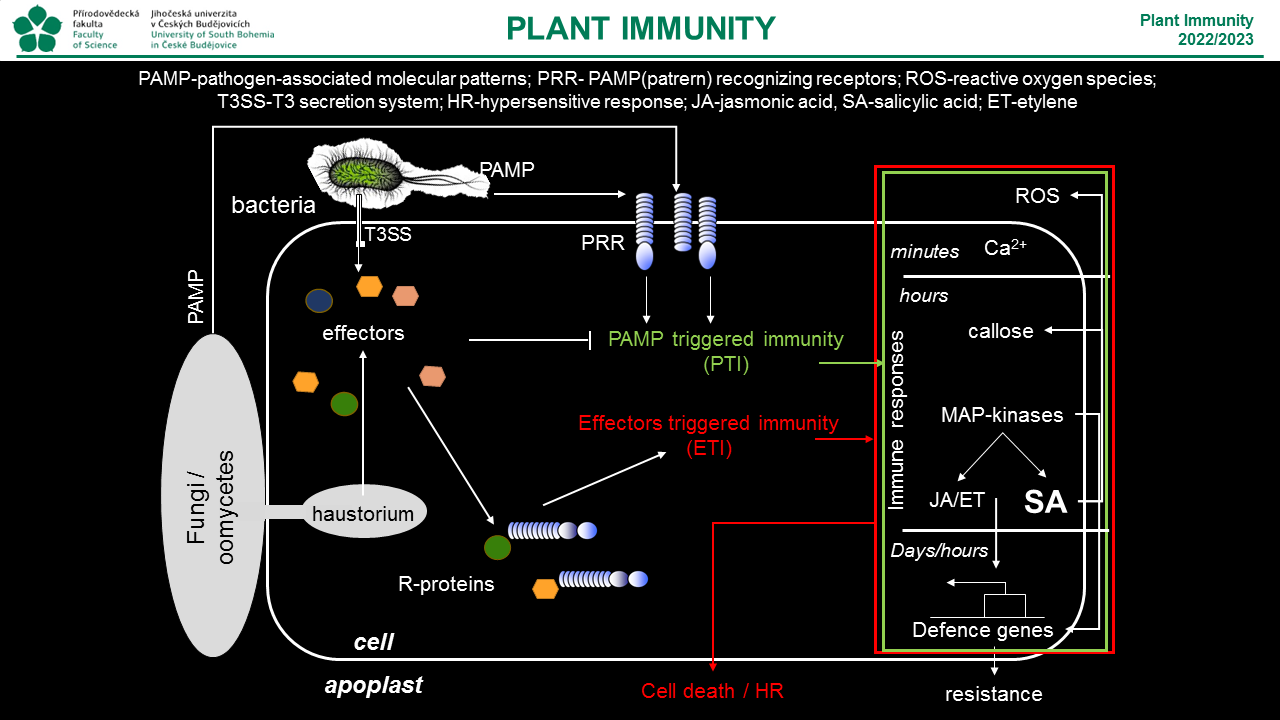
Cílem předmětu je seznámit studenty se základy interakcí rostlin s mikroorganismy (většinou patogeny) s důrazem na rostlinnou imunitu. Studenti se stručně seznámí jak s makroskopickými důsledky interakce rostlin s mikroorganismy, tak především s molekulárními ději v rámci rostlinné imunity. Zároveň budou představeny i praktické důsledky (využití) znalostí rostlinné imunity, které by měly být studenti schopni, po dokončení kurzu, kriticky diskutovat. Součástí předmětu jsou i cvičení, v rámci nichž se studenti seznámí se základními technikami analýzy imunitních reakcí rostlin. V rámci předmětu si současně kladu za cíl zlepšit komunikativní (především mluvené) dovednosti studentů s čímž souvisí, že studenti absolvují dva různé typy prezentací na dané téma, diskusní hodinu a ústní zkoušku.
- Učitel: Martin Janda

The aim of the course is to introduce students to the basics of plant interactions with microorganisms (mostly pathogens) with emphasis on plant immunity. Students will briefly learn both the macroscopic consequences of plant-microorganism interactions and, in particular, the molecular processes involved in plant immunity. At the same time, practical implications (applications) of knowledge of plant immunity will be introduced. The course also includes exercises in which students will be introduced to basic techniques for the analysis of plant immune responses (genotyping - DNA isolation, PCR, electrophoresis; inhibition of seedling growth, measurement of reactive oxygen species, analysis of plant infection by bacteria, analysis of callose formation). Students will use these techniques to analyse different genotypes of Arabidopsis thaliana.
- Učitel: Martin Janda